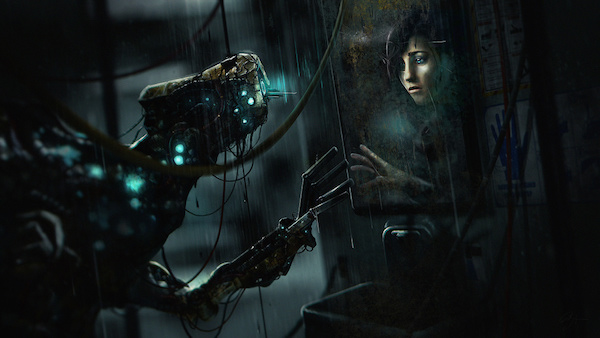Altered Carbon review: With portable consciousness, which body (or bodies) would you choose to live in?

Even in a future of body-swapping, we still need rubber tubes to breathe underwater.
Netflix’s Altered Carbon is an A+ sci-fi premise in the body of a B+ TV drama, but make no mistake, this is a compliment.
Yes, the performances occasionally feel stilted, the dialogue sometimes drifts into corny; a writing shortcut here or an egregious nude scene there hold it back from the Blade Runner heights it aspires to. But the show builds a fascinating world at such a high level of production, it’s hard to look away. And by setting a pulpy detective story in such a complex future — where identity is fluid and mortality is negotiable — the philosophical questions it raises are so much more mind-bending than the mystery it exposes.
In Carbon‘s vision of the future, each individual’s consciousness is stored in a “stack”, a mini-disc-sized data device embedded at the base of the brain; while bodies are referred to as “sleeves”, mere containers for the individuals who inhabit them. Some characters have inhabited a number of sleeves in their lifetimes. Some use other sleeves temporarily for subterfuge. The richest upper classes have their sleeves cloned and their stacks backed up to the cloud, so they can live for hundreds of years, cycling through body after rejuvenated body, in an uninterrupted aristocracy — with predictably dystopian results.
Throw in a few other weighty ideas like the humanity of AI (consciousnesses who never even get a sleeve), the potential for virtual manipulation (consciousnesses ripped out of their sleeves against their will), or the fragmentation of the individual (copying one consciousness to multiple sleeves) and the implications of this technology alone make the show a worthwhile speculation.
This only scratches the surface, as the show continues to find thought-provoking new implications to explore, amid a murder mystery filled with gun fights, flashbacks, grimy fantasies and brutal violence. It’s existential dilemma wrapped in guilty pleasure, but don’t let appearances fool you.

